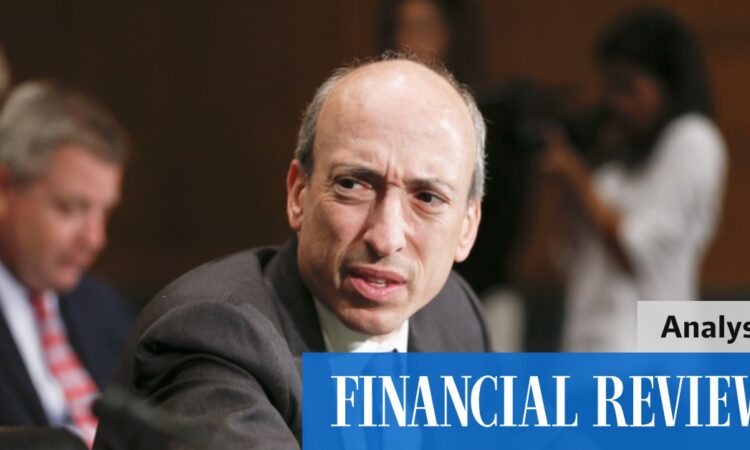
Even with Gensler’s words of caution, the SEC’s approval of the new bitcoin spot price ETF products – which will let ordinary consumers invest in crypto by proxy without the hassles of buying it themselves – is a stunning reversal from a year ago.
In late 2022, the crypto world was collapsing, along with the price of bitcoin. Its titans were exposed as fraudulent, foolish or both.
In November 2022, cryptocurrency exchange FTX and trading firm Alameda Research collapsed. Founder Sam Bankman-Fried has been convicted and is awaiting sentencing.
Do Kwan, who created a “stablecoin” project known as Terra/Luna (which proved to be anything but stable) was charged by New York prosecutors in March 2023.
In May, Celsius, a decentralised finance project that promised interest rates that looked, and were, far too good to be true, is dead. Investors sustained huge losses. “This is absolutely bat-shit insane,” one Brisbane investor told The Australian Financial Review, summing up the mood at the time.
What’s changed? Certainly, some villains have found comeuppance, but the number that remain is unknown. As recently as November, the largest crypto exchange Binance and its founder agreed to pay $6.6 billion in fines for violating sanctions and anti-money laundering laws.
Meanwhile, Gensler’s summary of bitcoin’s uses, or lack thereof, is basically right. Yet, the price of bitcoin has soared, making it worthwhile for funds that hold great volumes of it to sue the SEC into letting them run ETFs.
The bull run itself looks to have been sustained by hope of this listing, which will channel more money into bitcoin, and that old staple of crypto: faith.
As Bloomberg reporter Zeke Faux concluded at the end of his deeply sceptical book investigating crypto, Number Go Up: “The one coin I especially wouldn’t bet against is bitcoin.”
“It’s not that it’s useful,” he writes. “If anything, it’s more unwieldy than the others. But bitcoin’s true believers are so convinced that it’s hard to imagine anything will change their minds. To them, whatever the question, the answer is ‘buy bitcoin’.”
One local example: Yat Siu, the founder of Animoca Brands, a crypto conglomerate which was once listed on the ASX, was asked in Sydney last year if there was anything that would shake his faith in crypto. “I can’t think of anything,” he replied.
Michael Sonnenshein, the chief executive of Grayscale, a crypto investment fund that sued the SEC into submission, was crowing over Thursday’s announcement. It was “monumental”, “historic” and would “transform our future”, he said.
That view is at odds with much of the early hype around bitcoin as the token of a libertarian utopia, a harbinger of a bankless financial system, as another SEC commissioner, Caroline Crenshaw, noted in a blistering dissent to Gensler’s ruling.
“Individual investors in the US who want to invest in the product may already do so, either by mining it themselves or by setting up a wallet and buying it from someone else, each of which they are able to do from the comfort of their living room,” she said.
“That is the whole point of creating a new, censorship-resistant digital currency. So, why is so much energy being expended on linking it to the existing financial system?”
And she questioned what would happen if a fund involved in Thursday’s approval transacts with a terrorist or criminal, or needed to go into a trading halt, or there is another major crisis in the crypto world?
“Will approval of today’s products provide the previously attenuated nexus to traditional markets that allow crises in largely non-compliant crypto markets to spill over? These questions are not considered in today’s order.”
It isn’t hard to guess how bitcoin’s diehards will answer.

